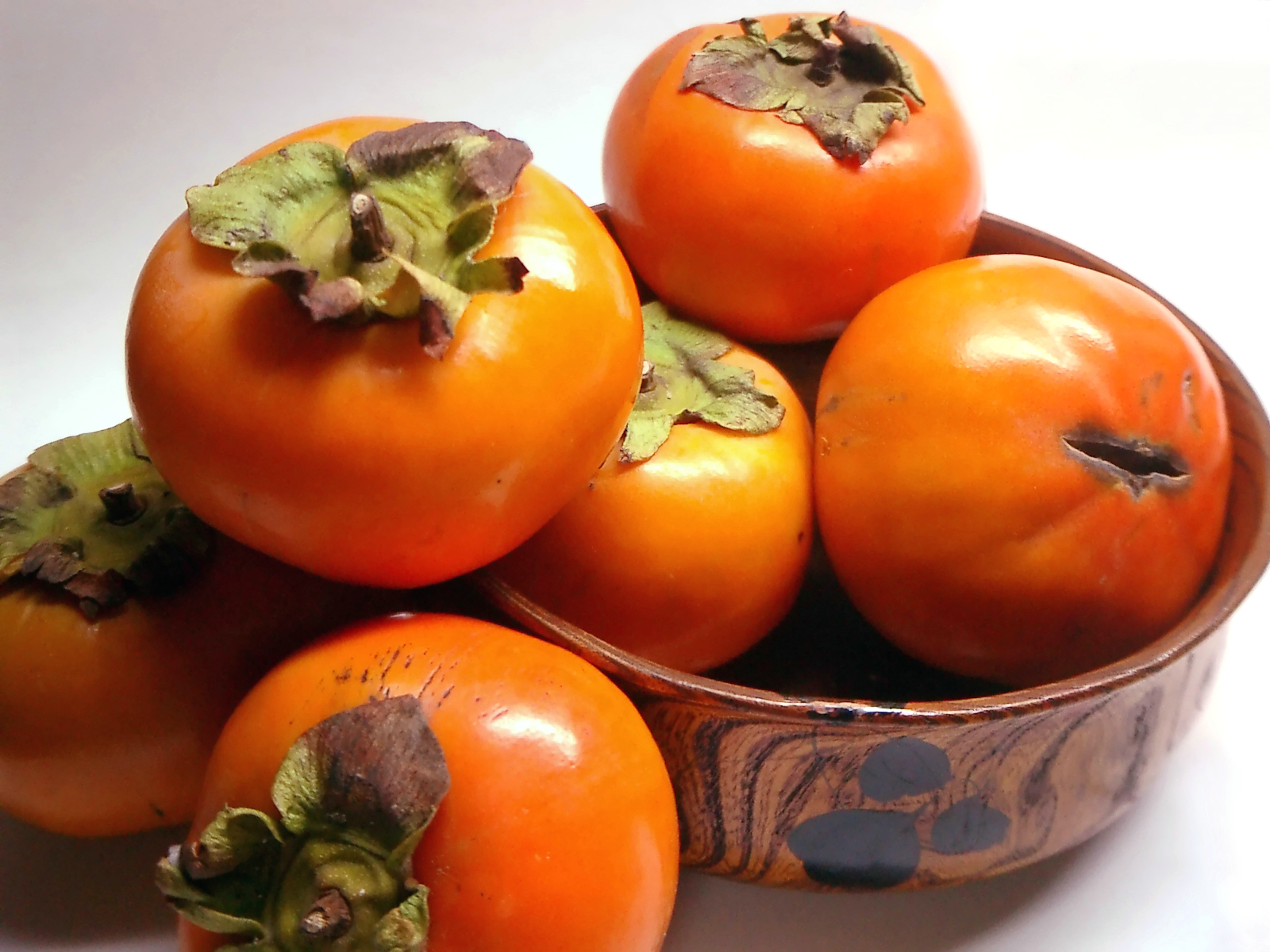Persimmons are a beautiful, fragrant, sweet berry available in the Fall. Some varieties can be eaten while still slightly firm although most varieties taste best when allowed to ripen to an almost mushy consistency. Dried persimmons are a way to enjoy this delicious treat throughout the year and are available at Asian markets.
Commonly offered after traditional Asian meals as a digestion aid, persimmon tea, sometimes called "persimmon punch," also alleviates the symptoms associated with gastroesophageal reflux disease or GERD. GERD symptoms occur when stomach contents rise into the esophagus, which produces irritation. Acid reflux sufferers often experience varying degrees of heartburn, a feeling that food remains stuck in the region of the sternum, or nausea and regurgitation after meals. Various factors contribute to GERD including a hiatal hernia or a weakened sphincter between the stomach and esophagus. Certain medications, obesity or pregnancy may also create the condition.
Persimmons are known, not only for their antimicrobial properties, but also contain vitamins A, C, and ten different minerals. The tea, made from simple ingredients consisting of persimmons, ginger, cinnamon and sugar, offers a number of health benefits that include diminishing flatulence and the discomfort that accompanies GERD.
Making the tea merely requires boiling the persimmons, adding the spices and sugar, and cooling the mixture. Some believe the secret of the remedy lies in the cinnamon and ginger components of the tea.
Cinnamon originated in China and using the bark as a spice and health remedy dates back thousands of years. The popular spice offers anti-inflammatory and antimicrobial properties as well as providing it's antacid properties, relieving excess gas and calming diarrhea. Ginger also has a long history in alternative medicine for relieving nausea and having anti-inflammatory properties.
Persimmon Tea
In a large saucepan, combine:
2 quarts water
3 cinnamon sticks
2 tablespoons of fresh ginger root, sliced
1 cup dried persimmons
3 tablespoons evaporated cane juice crystals
Simmer the water, cinnamon sticks and ginger in the saucepan for approximately 45 minutes.
Add the persimmons and cane juice crystals.
Simmer for an additional 15 minutes.
Remove from heat and allow the mixture to steep for one hour.
When cooled, strain the liquid, discarding the solid ingredients.
Refrigerate the concentrated tea and enjoy as needed, hot or cold.
Many people enjoy drinking the concentrated tea while others add a few tablespoons of the liquid to other beverages, which also provides symptomatic relief.
Individuals suffering from acid reflux typically consume three to four ounces of persimmon tea before or with meals and before going to bed. The sweet, spicy flavor of the tea appeals to many and GERD suffers appreciate the beverage's calming effects.
This simple home remedy remains worth a try for people plagued with the discomfort associated with gastric disorders. Some claim that including persimmon tea with an acid reflux diet and lifestyle modifications may reduce the need for prescription medications however GERD patients should consult with their primary care provider before eliminating any prescription medications.
Rowena Kang is a writer and the Outreach Director for the Morgan Law Firm, a firm that represents clients going through a divorce in Austin.
photo: Tomomarusan

No comments:
Post a Comment